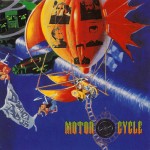Perhaps our deepest modern fear is the collapse of society, but if recent films and TV shows are any indication, it is also one of our most satisfying fantasies. Whether it’s a zombie infestation, the biblical apocalypse, a terrorist attack, or even an economic crash which returns us to the gold standard, we are fascinated and horrified at the idea of the world we know ceasing to exist. Why is that?
We fear and crave the end of civilization because it is through civilization that we come to know ourselves. We learn our place and value in life through the narratives, institutions, and values of our culture. Social forces like the church, government, and the media may teach us that the Good Life is defined as limitless freedom to be ourselves and follow our dreams; or that the Good Life entails a college education, a nice family, a powerful job, and lots of impressive things; or that the Good Life means feeding the homeless. But however way we conceive of our identity and hopes in life, our social world has had a dramatic impact. The fear of society’s collapse is the fear of losing our identity. After all, how do I know if I’m a good person without society to help me interpret myself? What future should I pursue if there is no conceivable future for humanity?
As horrifying as that is, we love stories of civilization’s collapse. Part of this attraction comes from the knowledge that this world is precariously balanced and that at any moment the order we see in the world which defines us may unravel. What ties will bind us? What lights will orient us? We are haunted and excited by these questions. We want to imagine the end of the world so that we might imagine a way past the end.
The most popular current example of this type of story is The Walking Dead. As strange as it may sound, this series may be too comforting for our own good, particularly the TV adaptation. Yes, some parts of the story help us to reconsider what it means to be human by peeling away the structures of society: the government is gone, family structures are challenged, and secular moral order is revealed to be completely fluid. Most significantly, we never get a good explanation for why the outbreak happened. The characters are so preoccupied with survival that questions of causes and origins seem irrelevant. Human life is pared down to the essentials. But the TV show mostly allows us to avoid identifying those essentials because the characters always seem to find communities, and through those communities, hope and purpose. There are children, food still grows, good survivors can group up out of common interests. The survivors face many terrible tragedies, but there isn’t quite the sense that their efforts are in vain.
This isn’t true of the comic series. The source material for AMC’s The Walking Dead is much darker and more unforgiving. The reader very quickly gets the sense that these characters are merely going on, with no explanation for the outbreak, no clear hope for the future, no way of building lasting communities, and nothing sacred. Why and how do you survive in a world without hope? By bracketing off all the social structures we use to define ourselves and our hopes, the comic series forces the reader to consider what’s left to define us and give us a hope that makes it worth living through terrible suffering. In that way, the comics are far more terrifying than the TV show.
Cormac McCarthy’s The Road gives us another version of this story, one which resonates more with the Christian faith. The novel is both starker and more unrelenting than even The Walking Dead comics and yet more hopeful. In McCarthy’s world, we have no reason to believe that humanity can come back from the end. Almost nothing grows. Everything is falling over and burning and turning to ash. But the father and his son continue walking down the road against all reason. They, rather inexplicably, hope that goodness, which McCarthy attributes to God, will care for them, somehow. This hope defines them, shapes their morals, and gives them purpose and meaning. They walk down the road in faith, and it is that faith that shapes them. Startlingly, a rescue of a kind comes in the final pages, validating their hope [for a very detailed explanation of Hope in The Road, see my journal article, here]. The novel, like all end-of-the-world stories, is frightening, but it is a fear that may lead us to know ourselves and rest in the goodness of God.
Fear reveals our heart’s desires and hopes. In a civilization that asks us every waking minute to trust in it, to put our faith in it, to know our identity based on it, stories which deny characters civilization can allow us to reconsider who and why we are. They frighten us, but they also invite us to see ourselves.
This article was adapted from the editor’s letter in the most recent issue of Christ and Pop Culture Magazine, Fear’s Great Revelation.












